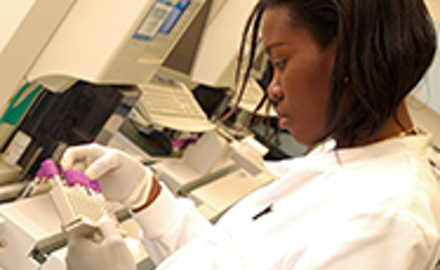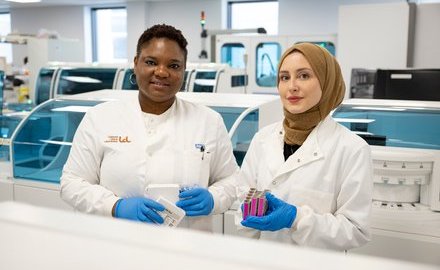Pathology Facts and Figures
What is pathology? Pathology is the study of disease and is central to diagnoses made in the NHS. The work of pathologists and scientists is vital for efficient and effective healthcare. Working in hospitals and the community, pathologists and scientists are involved in preventing, diagnosing, treating and monitoring diseases to keep people as healthy as possible.
Did you know?
- 105 hospitals in England provide pathology services.
- Hospital labs typically run over 1 billion tests per year at a cost of £2.2 billion.
- Barts NHS Trust, the largest in the UK, undertake 26m tests a year.
Facts from NHS England
- Around 95% of clinical pathways rely on patients having access to pathology services.
- 500 million biochemistry and 130 million haematology tests are carried out per year.
- 14 tests for each person in England and Wales are performed annually.
- 300,000 tests are performed every working day.
- 50 million reports are sent from labs to GPs every year.
Read the full report to find out more on the NHS England website.
Facts about pathology specialties
- Cervical cancer in the UK fell by 42% when screening was introduced, a direct result of the cellular pathologists and scientists working with family doctors.
- Vaccinations for pets have decreased cases of cat flu and other nasty diseases. Veterinary pathologists play a core part in advances in animal health.
- Only a small proportion of pathologists (less than 1%) investigate suspicious deaths.
- Humans have 20,000–25,000 genes. Scientists working in genetics help to investigate the genetic causes of disease.
- Each year, about 2 million units of donated blood are transfused in the UK. Many of these transfusions are for patients of haematologists – pathologists specialising in blood-bourne diseases.
- By 2025, it is estimated that 5 million people in the UK will have diabetes. Chemical pathologists work to monitor diabetes – and many other chronic illnesses – to help patients live more comfortably.




